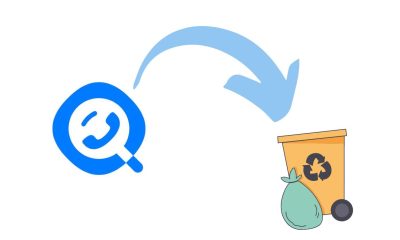Manage Your Business
Why is Zero-Based Budgeting important in App Development?
Zero-based budgeting is an approach to budgeting where the budget starts from zero and every expense must be justified for each budget period. This approach is particularly important in app development because it allows companies to allocate resources efficiently and effectively based on the current needs of the project.
Zero-based budgeting is a budgeting method that requires all expenses to be justified and approved in each new budget period. It was developed by Peter Pyhrr in the 1970s. This budgeting method analyzes an organization’s needs and costs by starting from a “zero base” at the beginning of every period. Wikipedia
Four Reasons
Here are some reasons why zero-based budgeting (ZBB) is important in app development:
- Aligns budget with project needs: In app development, project needs can change rapidly, and traditional budgeting methods may not be able to accommodate those changes. Zero-based budgeting ensures that the budget is aligned with the current needs of the project, which can lead to more efficient resource allocation.
- Encourages cost-saving measures: ZBB requires every expense to be justified, which can encourage app development teams to find cost-saving measures. This can lead to more efficient use of resources, which can ultimately result in a better return on investment.
- Increases accountability: With zero-based budgeting, each expense must be justified, which increases accountability throughout the app development process. This can lead to better decision-making and a greater sense of ownership among team members.
- Promotes transparency: ZBB can promote greater transparency in the budgeting process, as all expenses must be justified and approved by multiple stakeholders. This can help to build trust among team members and stakeholders, which can ultimately lead to a more successful app development project.
Here are some of the Key Advantages and Disadvantages
Pros:
- Increased efficiency: Zero-based budgeting ensures that every expense is justified, which can lead to more efficient use of resources in app development.
- Greater flexibility: Because ZBB requires companies to start from scratch with each budget period, it allows for greater flexibility and the ability to reallocate resources based on changing priorities and needs.
- Encourages innovation: Zero-based budgeting can encourage innovation in app development, as it requires companies to think critically about each expense and find more cost-effective and efficient solutions.
- Improved accountability: With ZBB, every expense must be justified, which can increase accountability and encourage better decision-making throughout the app development process.
Cons:
- Time-consuming: Zero-based budgeting can be more time-consuming than traditional budgeting methods, as it requires companies to start from scratch with each budget period and justify every expense.
- Requires significant planning and coordination: ZBB requires significant planning and coordination to ensure that every expense is properly justified and aligned with the current needs of the business.
- Potential for cost-cutting: While zero-based budgeting is not solely focused on cost-cutting, there is a risk that it could lead to cutting corners or sacrificing quality in order to stay within budget constraints.
- May not be suitable for all app development projects: Zero-based budgeting may not be suitable for all app development projects, particularly those that have well-established budgeting processes or that are focused on maintaining existing systems rather than innovating.
Overall, while there are some potential drawbacks to ZBB in app development, the benefits of increased efficiency, greater flexibility, and improved accountability can make it an effective approach for many companies. It’s important to weigh the pros and cons and carefully consider whether this approach is the right fit for your particular app development project.
Five myths of Zero-Based Budgeting in Startups
Zero-based budgeting is a time-consuming process that requires cutting costs and can be inflexible and risky, but it is not just for large companies.
There are several myths associated with zero-based budgeting in startups. Here are some common ones:
- Zero-based budgeting is only for large companies: While zero-based budgeting was first developed for large companies, it can be just as effective for startups. In fact, zero-based budgeting can be particularly helpful for startups that are looking to allocate resources efficiently and effectively.
- Zero-based budgeting is too time-consuming: While it’s true that zero-based budgeting requires more time and effort than traditional budgeting methods, it doesn’t have to be overly time-consuming. With the right tools and processes in place, zero-based budgeting can be streamlined and efficient.
- Zero-based budgeting requires cutting costs: While ZBB can help companies identify areas where they can cut costs, it’s not solely focused on cost-cutting. Rather, it’s about ensuring that every expense is justified and aligned with the current needs of the business.
- Zero-based budgeting is inflexible: Some people believe that zero-based budgeting is inflexible because it requires every expense to be justified. However, this approach actually allows for greater flexibility, as it allows companies to reallocate resources as needed based on changing priorities and needs.
- Zero-based budgeting is too risky: Some people believe that zero-based budgeting is too risky because it requires companies to start from scratch with each budget period. However, this approach can actually be less risky than traditional budgeting methods, as it ensures that every expense is justified and aligned with the current needs of the business.
Overall, while there may be some misconceptions about ZBB in Startups, this approach can be an effective way to allocate resources and ensure that every expense is justified and aligned with the current needs of the business.
What are the characteristics of zero-based budgeting?
The four characteristics of zero-based budgeting are: a bottom-up approach, a focus on justification and analysis, a periodic reassessment of expenses, and a emphasis on planning and goal-setting.
Bottom line
Overall, zero-based budgeting can be an effective approach to budgeting in app development, as it allows for greater flexibility, cost-saving measures, accountability, and transparency throughout the budgeting process.
-

 Marketing Tips6 days ago
Marketing Tips6 days agoWhat is my Instagram URL? How to Find & Copy Address [Guide on Desktop or Mobile]
-

 Cyber Risk Management1 day ago
Cyber Risk Management1 day agoHow Much Does a Hosting Server Cost Per User for an App?
-

 Grow Your Business6 days ago
Grow Your Business6 days agoBest Instagram-like Apps and their Features
-

 Outsourcing Development1 day ago
Outsourcing Development1 day agoAll you need to know about Offshore Staff Augmentation
-

 Software Development1 day ago
Software Development1 day agoThings to consider before starting a Retail Software Development
-
Marketing Tips6 days ago
B2B Instagram Statistics in 2024
-

 Grow Your Business24 hours ago
Grow Your Business24 hours agoThe Average Size of Home Office: A Perfect Workspace
-
Solution Review24 hours ago
Top 10 Best Fake ID Websites [OnlyFake?]








